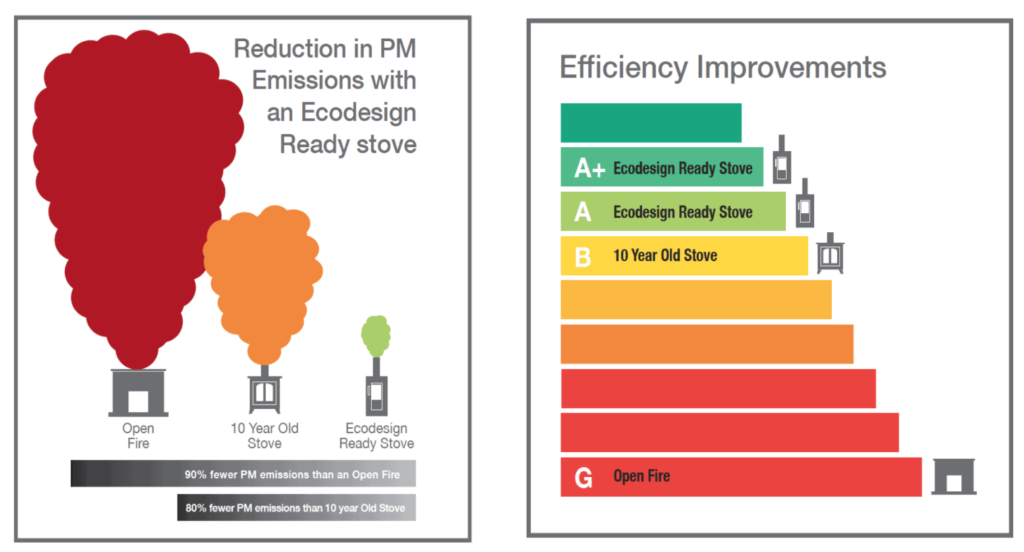You may be penalised if you own or buy a wood-burning stove which is not compliant with the Government’s 2022 Clean Air Strategy or if you use the incorrect type of fuel. All stove owners need to be aware of these rules, but also Landlords need to be aware too. As a busy landlord, you may not always be aware of all the obligations placed upon you.

The use of fossil fuels for burning, in particular coal, has reduced significantly since the 1950s. Wood burning stoves are a green and renewable heating source, and in recent years there has been a significant demand for them not just in UK households, but in homes all over the globe. Using inefficient outdated (non Ecodesign) stoves, or burning the wrong fuel (i.e coal or unseasoned wood) dramatically increases emissions. New regulations are set to counter these problem areas. These regulations are what you need to be aware of if your tenants have a wood-burning stove in a property you rent.
The Department for Environment, Food, and Rural Affairs (DEFRA) published its Clean Air Strategy in 2019. This stated that the new Ecodesign regulations would come into force in 2022, which now means that all newly purchased stoves will need to meet agreed emissions standards, regardless of where they are used in the country.
The Clean Air Act enables local councils to declare certain regions and districts as smoke control areas. In these zones, using an appliance that emits smoke through a chimney (i.e. a wood-burning stove) is not allowed unless you’re burning an authorised fuel or using a DEFRA exempt product. Fines of up to £1,000 can be imposed for breaches of these regulations.
Landlords should make sure that their tenants are aware of the regulations around the burning of solid fuels where a wood or multi solid fuel burning stove or open fire is provided.
Landlord Responsibilities:
You’re considered a landlord if you rent out your property. As a landlord, you must:
- Keep your rented properties safe and free from health hazards
- Make sure all gas and electrical equipment is safely installed and maintained
- Provide an Energy Performance Certificate for the property
- Protect your tenant’s deposit in a government-approved scheme
- Check your tenant has the right to rent your property if it’s in England
- Give your tenant a copy of the How to rent checklist when they start renting from you (you can email it to them)
Other Heating Sources – What About Gas?
As a landlord, you need to also be aware of your obligations from a gas point of view (among a range of other things). The Gas Safety (Installation and Use) Regulations 1998 (GSIUR) say your duties as a landlord to make sure all gas appliances, fittings, chimneys and flues are safe and working efficiently. If you’re letting a property with gas appliances installed, you’ve got three main legal responsibilities:
- Gas safety checks – All gas appliances need an annual safety check by a Gas Safe engineer.
- Gas safety record – Following the annual gas safety check and receipt of your Landlord Gas Safety Record, you’ll need to provide a record of this check to your tenants.
- Maintenance – You’ll need to make sure that all gas pipework, appliances, chimneys and flues are kept in a safe condition.